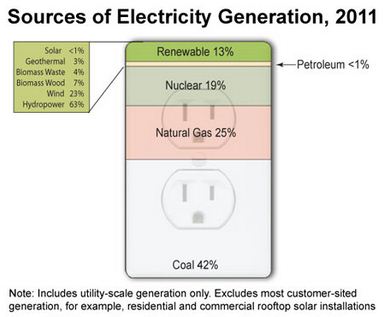Old Versus New Techology
SEARCH BLOG: TECHNOLOGY
A friend sent me a file version of this video... watch this before you read further:
I juxtaposed this with a recent post at Al Fin:
...EMP stands for electro-magnetic pulse and it is one byproduct of a nuclear blast. EMP destroys power sources, communication capabilities and would cripple or destroy the abilities of most satellites to function. A percentage of military communication and other satellites are hardened against EMP but the gravest effect would be on the ground, the space expert said. “As bad as the space part of this is, that is pretty bad, but the ground part of it is much, much worse. Effectively, whoever was subjected to an EMP burst would be shoved back to an agricultural state.” Few civilian assets such as power grids, generators, telephone systems and commercial communications satellites are hardened against EMP. _DefTechThere is an inverse relationship between complexity and survivability/durability for most consumer technology. An acquaintance of mine has a collection of early 1970s GM "muscle cars" that would still run if an EMP incident occurred over the U.S. I have an old portable typewriter that could still write articles if my computer failed. My present coffee maker would be useless without its electronic controls, but an old drip pot would reliably keep me awake.
This is not to say that I am pining for the "good old days." Technology has significantly improved our lives in many ways. But, as Al Fin has pointed out, we are increasingly vulnerable to disastrous technological collapse because key components of our technologies are not protected... but could be protected with minimal expense... if designed in rather than added on.
Here are the key technologies that need upgrading:
- power, water, and natural gas distribution systems
- computers/servers and cellular communications
- electronically controlled systems in aircraft and vehicles
- medical systems
The Amish would not notice much difference, but how many among us are prepared to become Amish?
Should we worry? Go back to the top and click on the link to Al Fin's article. Then consider what your government... especially the new government of reconciliation... is not communicating. Remember that in animal and plant evolution, specialization usually leads to extinction when conditions change. We have specialized into an electronics-based society.
But who is this Al Fin and what kind of credibility should we give to the rantings of an anonymous blogger? Fair enough. Would you take the rantings of The Wall Street Journal?Oh, this is not new news. Congress got a full report in 2004.... The U.S. has a Missile Defense Agency that is working on ways to intercept ballistic missiles.
So, let's go back to the premise that old technology can be superior to new technology. The most effective point of detonation for an EMP device is just south of Lake Michigan.
A small, unsophisticated rocket concealed in a freighter headed toward Chicago would only have to have sufficient power to travel about 50 miles to accomplish what a much larger ballistic missile would require. What conceivable defense could be employed to react to and destroy such an EMP device? The system would have mere seconds to respond.Hint: it probably is not this system. Until a hardened, satellite-based anti-missile weapon that is in a stationary orbit above the U.S. Mid-west can be deployed. And it is unlikely that such a weapon could ever be approved by U.S. Congress. After all, if we protected our nation, some other nation might object. The only alternative to a potential EMP attack is preparation.
Even if Congress required that from this moment forward all electronics be hardened against EMP, it would take a decade before significant protection was achieved. Of course, if we wait a decade, it would be two decades. Kind of like the reason for not developing our domestic oil and natural gas supplies...






